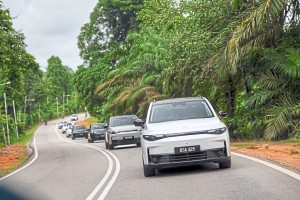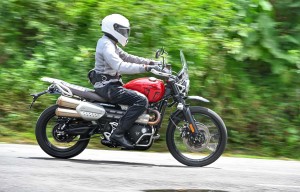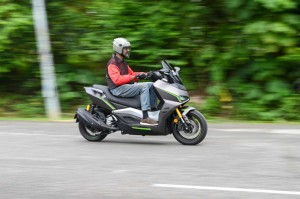Boston Dynamics and Toyota partner for robotics research
By CARSIFU | 18 October 2024
BOSTON: Boston Dynamics and Toyota Research Institute (TRI) announced today they will join forces, combining two of the world’s leaders in artificial intelligence and robotics.
The research partnership aims to accelerate the development of general-purpose humanoid robots utilizing TRI’s Large Behavior Models and Boston Dynamics’ Atlas robot.
“There has never been a more exciting time for the robotics industry, and we look forward to working with TRI to accelerate the development of general-purpose humanoids,” said Robert Playter, CEO of Boston Dynamics.
“This partnership is an example of two companies with a strong research-and-development foundation coming together to work on many complex challenges and build useful robots that solve real-world problems.”
“Recent advances in AI and machine learning hold tremendous potential for advancing physical intelligence,” said Gill Pratt, chief scientist for Toyota and CEO of TRI.
“The opportunity to implement TRI’s state-of-the-art AI technology on Boston Dynamics’ hardware is game-changing for each of our organizations as we work to amplify people and improve quality of life.”
Boston Dynamics has a longstanding reputation for creating groundbreaking advances in humanoids, from extreme mobility to bimanual manipulation.
The latest generation of Atlas is the result of years of hardware/software co-design aimed at building the most capable humanoid platform, both in terms of physical capability and software interfaces for authoring whole-body behaviors.
This makes it an ideal platform for advancing the science of AI-based manipulation skills.
Concurrently, TRI is widely recognized as a world leader in the rapid advancement of Large Behavior Models (LBMs) for robotics.
This includes groundbreaking work on diffusion policy, which pioneered the successful application of generative AI to advance dexterous manipulation capabilities in robotics.
TRI has also played a leading role in the development of open-source robot AI models and datasets. Leveraging additional strength in computer vision and large-language model training, TRI’s work on LBMs aims to achieve multi-task, vision-and-language-conditioned foundation models for dexterous manipulation.
Scott Kuindersma, senior director of Robotics Research at Boston Dynamics, and Russ Tedrake, vice president of Robotics Research at Toyota Research Institute, will co-lead the Boston-based research partnership.
The project is designed to leverage the strengths and expertise of each partner equally.
The physical capabilities of the new electric Atlas robot, coupled with the ability to programmatically command and teleoperate a broad range of whole-body bimanual manipulation behaviors, will allow research teams to deploy the robot across a range of tasks and collect data on its performance.
This data will, in turn, be used to support the training of advanced LBMs, utilizing rigorous hardware and simulation evaluation to demonstrate that large, pre-trained models can enable the rapid acquisition of new robust, dexterous, whole-body skills.
The joint team will also conduct research to answer fundamental training questions for humanoid robots, the ability of research models to leverage whole-body sensing, and understanding human-robot interaction and safety/assurance cases to support these new capabilities.
Tags
Autos Toyota
Reviews

Porsche Macan EV: Re-energised exhilaration

All-electric Leapmotor C10 SUV ticks all the right boxes

New Kia Sportage: Versatile and stylish

6.6
Triumph Scrambler 1200 X: A good balancing act

8.3
Mercedes-AMG GLA 45 S 4Matic+: Poking the pocket rocket

8.0
Moda Sporter-S 250: A new player in town

Porsche Taycan E-xperience drive: Kuala Lumpur - Kuantan

Mercedes-Benz E 350 e PHEV: Refined elegance, timeless prest...
Videos

StarCarSifu Editors' Choice Awards 2024: Top winners

The Snowball – Lamborghini’s Heartwarming Christmas Story of...

EVOGO battery swapping solution showcased at IAA Mobility 20...
